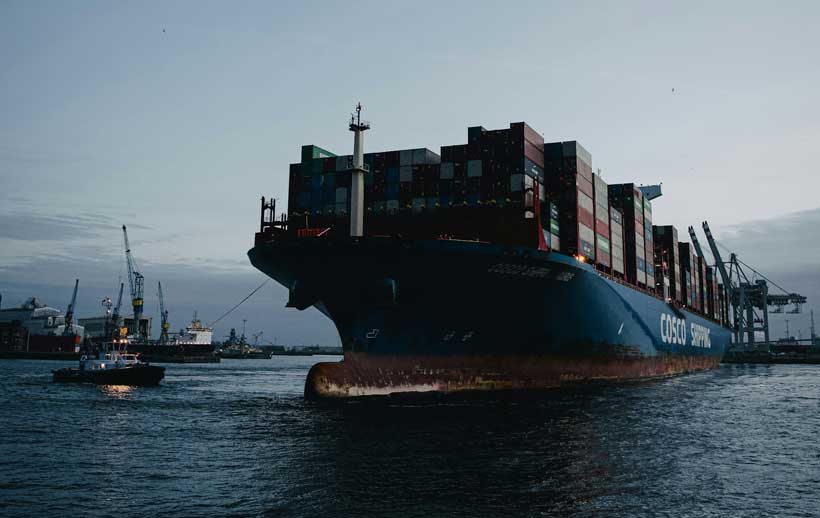As an economic superpower, it is no doubt that trade routes are of great importance to China, especially the Red Sea. In fact, China’s shipments to the West rely on the Red Sea and the Suez Canal, contributing to 60% of their exports to Europe (Mohamed, 2023). Paired with China’s growing influence as a significant player in the Middle East as a result of increased economic and political interests, most would expect that China has a greater urgency in addressing the Red Sea crisis.
China has not been a vocal actor in the conflict and has not been visible in continuous efforts, but there are some pieces of information that may help us understand their outlook. China’s foreign policy suggests that they are unlikely to dip their toes in the water as they hold a non-interventionist approach. However, past regional conflicts have shown that this approach is sometimes abandoned in pursuit of mediation efforts, e.g. when China brokered a detente between Iran and Saudi Arabia in 2023. Furthermore, China’s relations with Iran has not guaranteed their support for the Houthis seeing as in 2022, China supported the UNSC Resolution 2624, which condemned the Houthis through embargoes and sanctions (Hong, 2024).
The closest China has come to addressing the situation was earlier this year, when Chinese Foreign Ministry spokesperson, Wang Wenbin, voiced deep concerns over escalated tensions in the Red Sea. Wang pointed out that the conflict is a spillover of the atrocities occurring in Gaza, and implied that ending it, will also put a stop to the Red Sea crisis. Aside from this, the only solution Wang proposed is a passive one, where relevant parties are discouraged from adding motive for escalation and to instead, jointly safeguard the vital shipping route. (Staff, 2024)
The crisis has not stopped China from delivering shipments through the Red Sea, though it has called for additional protective measures. The Chinese navy has been involved in escorting Chinese cargo ships since January, while concerned Chinese officials have pressured their Iranian counterparts to help cease the attacks or risk business relations with Beijing. A detail the international community often ignores is that China does not have an absolute influence on Iran, and Iran does not have an absolute influence on the Houthis, as pointed out by Yun Sun in a discussion on China’s role in Red Sea Security. Upon understanding this, some argue that China’s impact in resolving the crisis is limited. On the other hand, some argue that China is actually benefiting from the tensions and their lack of action is a calculated move.
The basis of this argument includes a few events, one of them being China’s abstention for the UNSC Resolution 2772 in January. It has the potential to significantly alleviate the conflict through its sections, such as section 2, which ‘demands that the Houthis immediately cease all such attacks’. Despite this being favourable for China in terms of eliminating the economic costs of exports, they did not support the resolution. Moreover, China’s logic surrounding the issue has been hinted as reactive, meaning that China would not take part in intervention efforts as long as Chinese ships have not been attacked. To ensure that Chinese ships remain unharmed by the Houthis, they have been using signals to indicate that their ships contain Chinese crew, thus avoiding attacks. This is also helped by the fact that the Houthis have declared that they will not attack Chinese or Russian ships with no ties to Israel. As long as there is a short-term solution, a long-term resolution mediated by China in the future so far, is not probable. (Gurjar, 2024)
China has also been invited to take part in the US-led coalition to protect the Red Sea, but showed no interest in joining it, which is a bit hypocritical as later on, Wang’s call to action specified jointly safeguarding the Red Sea. This move might be because China feels their support base in Djibouti is sufficient and/or since the PLA Navy had an anti-piracy task force consisting of a guided missile destroyer, missile frigate, and replenishment vessel headed towards the Gulf of Aden. However, it is unclear whether the fleet carrying all these items reached the intended destination or not. Another reason, which highlights the realist nature of international politics, is that China fears accepting the US’s invitation would boost the US’ position as a regional hegemony, therefore weakening China’s role. Though on the US’ side, resolving the issue does not seem to be about asserting their dominance in international politics or bolstering Israel’s agenda, but rather maintaining maritime security for themselves and other allies.
Among affected countries, China’s inaction is frustrating as they have both the relations and economic power to strike a move leading to a cease in attacks. Yet at the same time, the actions that they have undertaken have not proven to bring much change. Allegedly, Beijing raised the issue with Tehran, emphasising that sustained attacks will deteriorate economic cooperation between the two, which will impact Iran more as they are heavily dependent on it (Urhová, 2024). Finding a solution involving China is difficult here, they have high stakes and relations they can’t forego, but simultaneously, doing nothing will be detrimental economically and for their image as a global power. Thus, we are left to wonder, which will China prioritise more and how will the Red Sea crisis proceed as the situation between Palestine and the Israeli occupation develops.
